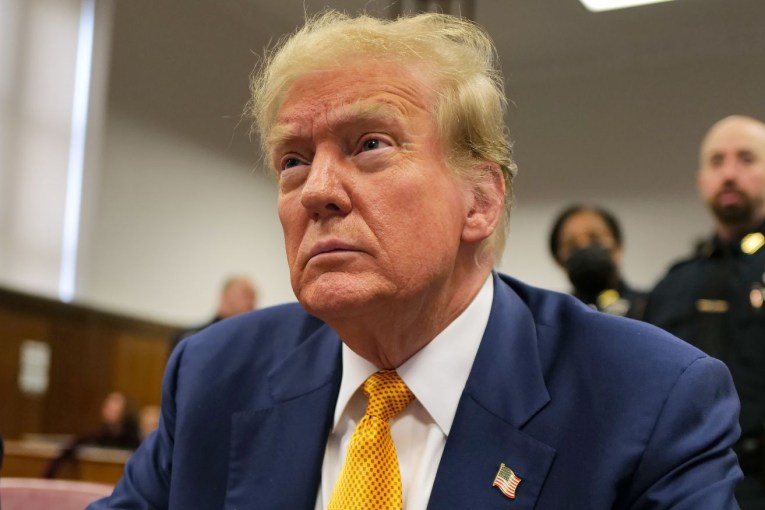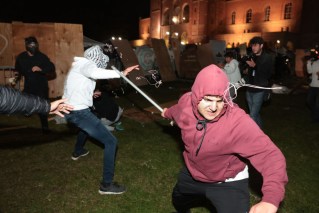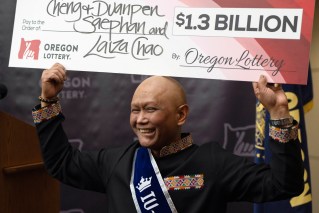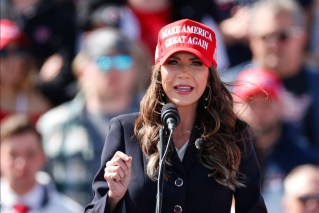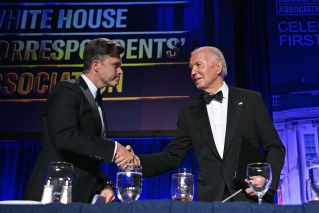Elon Musk becomes an unlikely anti-establishment hero of the GameStop saga
Just weeks before Elon Musk became the richest person in the world thanks to the soaring value of Tesla shares, the eccentric billionaire reflected on the fickle nature of the public markets.
“The stock market is a strange thing,” Musk said in an interview with Business Insider in December.
“It’s like having a manic depressive who’s constantly telling you how much your company’s worth. And sometimes they have a good day, and sometimes they have a bad day, but the company is basically the same. The public markets are crazy.”
A month later, Musk has inserted himself into one of the most confounding stock market dramas in years – the multibillion-dollar battle over GameStop being waged between elite hedge funds and retail investors communicating on Reddit.
On Tuesday, as GameStop shares skyrocketed, Musk weighed in with a one-word tweet – “Gamestonk!!” – and a link to the Reddit forum on which much of the discussion has unfolded. Musk’s message was seen as an endorsement of sorts from one of the most powerful figures on the web, and in the days that followed, investors bid up the price of GameStop to new highs.

Elon Musk weighed into GameStop’s surge with a one-word tweet – “Gamestonk!!” Photo: NYT
It is a spectacle tailor-made for Musk’s live-wire online persona. He is at once a capitalist hero, a glossy magazine celebrity and a bomb-throwing troll with 44 million Twitter followers, inhabiting his role as the chief executive of two major companies with a bravado that most corporate leaders wouldn’t dream of.
The richest man in the world is also, somehow, a hero to the anti-establishment crowd, riling up the digital masses one tweet at a time.
A master of self-promotion, Musk regularly posts earnest messages about Tesla, his electric car company, and SpaceX, his private spaceflight company. At the same time, he hangs out with Kanye West, dates a pop star and named his most recent child X AE A-Xii. And he seems to have the internet coursing through his veins – he is fluent in meme culture, attuned to the neuroses of the web’s hive-mind, quick to reply to almost anyone and happy to throw digital haymakers at his detractors.

SpaceX owner and Tesla CEO Elon Musk is a mster of self promotion.
The jarring mix of highbrow success and a willingness to bash around on the fringes of the web has made him the consummate insider outsider. On Wednesday, Musk, who is worth some $235 billion, tweeted that Discord, a freewheeling communications app that shut down a forum popular with GameStop traders for offensive language, was going “corpo,” or corporate.
“In many ways he reminds me of Steve Jobs,” said Walter Isaacson, who wrote a book about Jobs, the outspoken Apple co-founder. “He’s got an absolute passion for his products, and he’s very unvarnished. He doesn’t polish himself for public consumption, especially when he’s communicating on the web.”
The GameStop saga is a generational clash and a referendum on who controls the markets, pitting an army of retail investors – many of them young digital natives – against hedge fund short-sellers, who had bet that GameStop stock would fall. And in this war, Musk is most assuredly not rooting for Wall Street.
A self-made billionaire, Musk has a particular animus for short sellers.
For years, powerful investors bet that Tesla stock would fall. In 2018, that pressure, combined with production glitches at Tesla and a personal life in tumult, pushed Musk to the brink. He said on Twitter that he was considering taking Tesla private for $US420 a share and railed against short sellers in an emotional interview with The New York Times.

For years, powerful investors bet Tesla’s stock would fall, but Elon Musk and his firm have come out on top.
On Thursday, as some trading platforms restricted investors from buying GameStop shares – a move that helped short sellers – Musk tweeted that “shorting is a scam legal only for vestigial reasons.” A representative for Musk declined to make him available for an interview.
In other tweets, he supported calls to make short selling illegal and got behind Rep. Alexandria Ocasio-Cortez’s calls for an inquiry into Robinhood, one of the apps that restricted investors from buying GameStop stock.
“Here come the shorty apologists,” he wrote in yet another message. “Give them no respect Get Shorty.”
His penchant for spouting off online has landed him in legal trouble. After his tweet about taking Tesla private, the Securities and Exchange Commission sued him, and as part of a settlement, he agreed to have his tweets vetted by communications professionals. Months later, Musk was sending unsupervised tweets about material information once more, and the SEC asked him to be held in contempt of court.
In another episode, Musk was sued for $248 million by a cave explorer whom Musk labeled a “pedo guy” on Twitter after the diver, who helped save Thai schoolboys trapped in a cave, was critical of Musk’s plan to use a submarine as part of the rescue effort. Musk testified and was found not to have defamed the explorer.

Elon Musk was sued by Thai cave hero Vernon Unsworth (right). Photo: The New Daily
Musk does not appear to be one of the traders bidding up GameStop. He told Business Insider that the only public company stock he owned was Tesla and that he planned to use his wealth to colonise the cosmos.
“I think it is important for humanity to become a space-faring civilization and a multiplanet species,” he said.
I want to be able to contribute as much as possible to the city on Mars. That means just a lot of capital.”
Musk has more capital these days. The value of Tesla stock has ballooned in recent months, with the company’s market capitalization seemingly divorced from its modest financial performance in the real world, a dynamic not unlike what is happening at GameStop.
Musk in May tweeted that Tesla stock was “too high.” And while shares dipped upon those remarks, they have risen steadily since then, allowing Musk to eclipse Jeff Bezos, the Amazon founder, as the richest man alive. (The two men now toggle back-and-forth for that spot.)
The run-up in Tesla stock had another effect, too: Last year, short sellers who bet against Tesla lost an estimated $50 billion.
